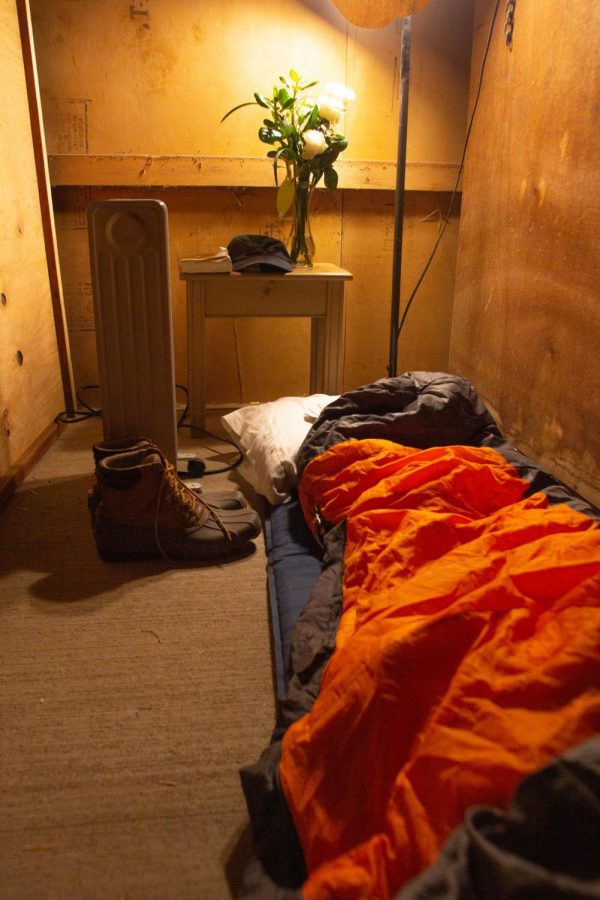Emergency applications for microshelters now open
April 30, 2020
Prior to the limitations and challenges caused by COVID-19, many Corvallis community members were already engaged in public conversations about how to best address the issue of homelessness. Now, in the midst of the pandemic, measures are being taken to protect those that are at risk.
“The City of Corvallis Community Development Department has temporarily allowed applications for microshelters using an existing regulatory framework in Corvallis Municipal Code 5.03.080.080.04,” said Patrick Rollens, the city’s public information officer.
According to the First Congregational United Church of Christ, where the Safe Camp homeless camp is currently being held, microshelters are “about the size of a garden shed, are large enough to sleep an individual or a couple. They are electrically heated and come with locking doors, smoke alarms, carbon dioxide alarms and fire extinguishers; no open flames will be allowed inside.”
Paul Bilotta, Community Development Director, said that this microshelter program is an extension to an existing policy that allows citizens to temporarily live in their car or RV. Because of the COVID-19 pandemic, the city has expanded this policy for microshelters as well.
“This program does not create microshelter communities, but rather short term structures to meet an emergency need. It is similar to when you see New York City creating temporary hospitals or when you see FEMA bring in houses for people after a hurricane,” Bilotta said.
This emergency policy is treading brand new ground for the city. Rollens said that the City Council has postponed a public discussion to maintain social distancing. He predicts that a meeting will take place once it is safe to do so.
“The experience the community has with [the microshelters] over this emergency time period will obviously be a key piece of data when the broader community policy discussion occurs,” Bilotta said.
Rollens said community members interested in applying for a microshelter permit should fill out the overnight camping permit found on the City of Corvallis website, including the specification that you are applying for a microshelter allowance.
“Private property owners (such as churches or business owners) can apply to install a temporary microshelter for a period of up to 30 days, upon approval by the City Manager… So basically these microshelters have a maximum duration of 90 days under the current allowance,” Rollens said.
Julie Arena, H.O.P.E. Program Coordinator, said in an email that their Emergency Operations Center is working quickly to make connections. Arena also said OSU students can go to the Benton County Recovers website and easily sign up to volunteer.
“There are lots of ways that OSU students can become engaged in this issue and many OSU students regularly are involved either as volunteers or generating funds for service providers. This is particularly important during COVID-19 because a lot of the existing volunteers are in high-risk categories due to age or underlying health conditions and therefore not able to volunteer at the levels they are used to,” Bilotta said.










































































































